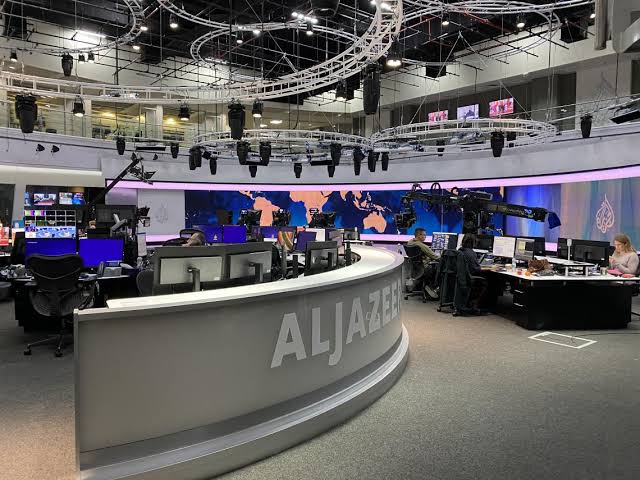A BBC investigation has uncovered many claims of sexual harassment against veteran journalist Kamahl Santamaria in Al Jazeera’s Doha newsroom, focusing on interviews with several current and former employees as well as documented proof of improper texts and staff complaints.
According to some, Santamaria was not the only one.
Additionally, they claimed that Al Jazeera promotes a negative workplace environment where complaints of racism, sexism, sexual harassment, and bullying are frequently ignored. Those who talked with the BBC requested anonymity out of concern for how it may impact their jobs.
The BBC received no direct response from Santamaria. However, he made an admission in a public statement, claiming that some of the charges were “true, some missing crucial context, some outright lies and a rewriting of history”.
He acknowledged and apologised for “behaviour that may have made anyone feel uncomfortable” in response to the allegations made by the BBC. He also acknowledged that what he had previously believed to be “flirtatious, overly friendly, just a bit of banter”, or simply within the bounds of acceptable in the prevailing newsroom culture was, in fact, “not”.
The BBC forwarded a thorough list of the 22 complaints to Al Jazeera, but the news organisation chose not to address any of them specifically, saying that it “considers its staff across the world the backbone and foundation of the company – their safety and wellbeing are of utmost importance”. “As an international organisation with over 95 nationalities, we continually strive to build a healthy and constructive work environment for all,” it added.
Employees in Qatar, a small, oil-rich Gulf nation criticised for its record on human rights and gender equality, also told the BBC that it is difficult to address issues there.
Many drew comparisons between Santamaria’s graceful goodbye message after working at Al Jazeera for 16 years and his hasty departure from TVNZ, which was reportedly prompted by a barrage of claims.
Santamaria was employed by Al Jazeera in 2005 as a presenter on the English language channel in Doha after beginning his career as a TV reporter in New Zealand.
He advanced fast through the ranks, anchoring significant international issues including the 2020 US presidential election and flagship shows.
He was described as an “excellent broadcaster”, affable, and conversational by those who knew him.
Former colleague, Tory (not her real name) claims Santamaria began giving her unwanted attention, when she was still a rookie producer. She claims that he would message her on Twitter, offering to “cuddle” and questioning why she had not invited him on her vacation. The BBC has proof of inappropriate emails and texts Santamaria sent to coworkers on internal Al Jazeera email, Whatsapp, and Twitter.
The touching in the workplace followed, according to Tory. The worst was the kiss on the cheek, and more than once she had to use the restroom to clean Santamaria’s “spit off my face”.
Tory claims she spoke about Santamaria's behaviour with at least one other coworker and a mid-level boss; both have told the BBC that these talks did indeed take place. Santamaria’s actions allegedly attracted witnesses on multiple occasions, according to a number of current and former coworkers.
A current male employee at Al Jazeera claimed Santamaria gave him an impromptu kiss on the mouth while they were in the newsroom. It was supposedly observed by a news editor who is now a senior executive at the station.
Fiona, who worked as a freelancer for Al Jazeera for four years, claimed that Santamaria made inappropriate comments, tried to hug her in the newsroom, and sent her inappropriate texts. She referred to this behaviour as “textbook grooming”.
Although she claims she did not file a formal complaint, she did tell a mid-level management about her experience, and the manager responded, “Oh, he’s not still doing that, is he?” She claims she was asked if she wanted to speak with HR, but she declined because she was on a temporary contract. Then, according to her, she was told to disregard Santamaria.
After that, she continues, he stopped talking to her, but she made new hires aware of him.
Fiona and others are questioning why, in contrast to TVNZ, which independently evaluated Santamaria’s appointment as soon as allegations surfaced, their complaints against Santamaria did not result in an investigation.
At Al Jazeera, where the BBC has learned that the accusations extend beyond Santamaria and the newsroom, a reckoning now seems to be underway.
At least two other men at Al Jazeera, besides Santamaria, harassed her, according to a former producer and correspondent. She claims that one of them was her line boss and the other was a manager who would invite her over to his house when his wife was not there.
She admitted that she was terrified that if she refused his approaches too forcefully, he might ruin her career.
A mid-level manager has also been accused of harassment by a number of women and men in another department at Al Jazeera.
He has said the most offensive things, including talking about “sex during Ramadan” and asking hijabis what colour their hair is. He has also asked male colleagues when they are getting a second wife and if they have lost their virginity yet.
They claimed that at least one of their colleagues had left as a result. Another employee who worked there corroborated to the BBC that he had seen this individual harassing others.
Members of his department report that this man has now left Al Jazeera, months after charges against him first arose.
Liam, an employee in Doha, claims that a number of staff members have been subjected to harassment and bullying for “years and years and years”.
Because their work is intertwined with every area of their life in Qatar, everyone the BBC spoke to expressed a dread of speaking out.
According to Marti Flacks, a senior scholar at the Centre for Strategic and International Studies, workers in Qatar struggle to leave abusive professions since the recruiting system connects the work visa, children’s schooling, housing, and other perks to a certain company.
The fact that individuals have “challenges accessing effective remedy, such as compensation,” Flacks continued, is another reason why people are hesitant to report abusive and inappropriate behaviour.
Even though Al Jazeera claims to be independent, the Emir of Qatar finances it, and its journalists do not cover every facet of the government. Local regulations also impose restrictions on free speech.
In response to a BBC request for comment, Al Jazeera stated: “Our anti-harassment policies are clear, comprehensive, and available to all employees. As is evident in several recent cases, every formal complaint by our staff is taken extremely seriously with the appropriate remedial action taken after thorough investigation of the claims being made.”
In 2022, victims complain that policies are not being followed, there is a “culture of forgiving behaviour”, and “people considered to be above the law” are protected. This is especially frustrating in a global newsroom like Al Jazeera, and especially in the wake of the #MeToo movement, which the network extensively covered.
All victims’ names have been changed upon request to protect their identity.














-20260304091720.webp)






-20260303080739.webp)










-20260225072312.webp)





-20260228064648.jpg)
